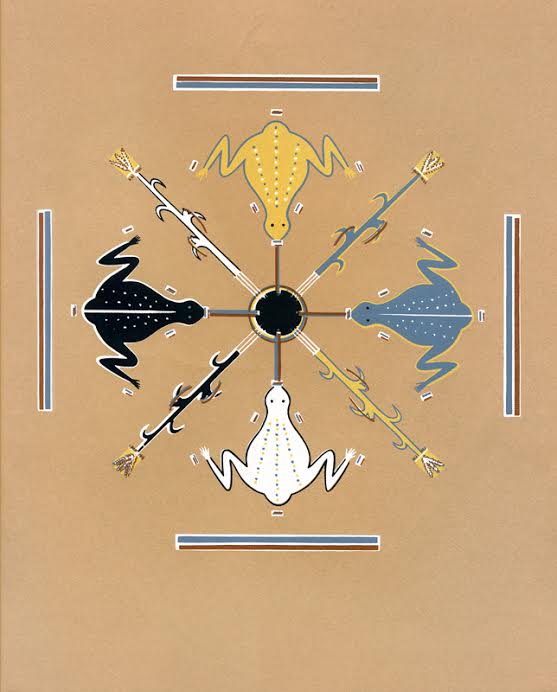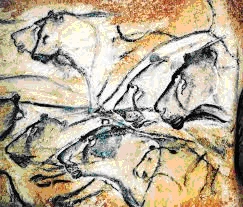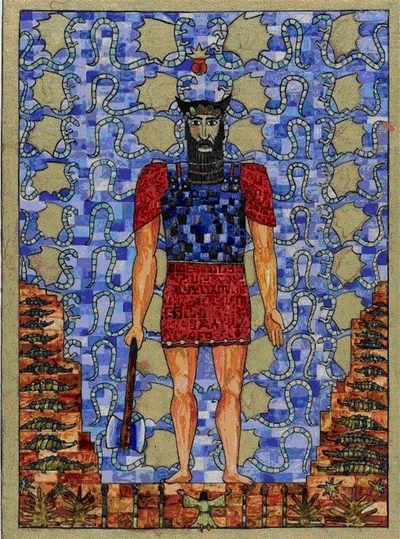ARAS Connections: Image and Archetype - 2018 Issue 2

Nothing is more important to ARAS than the symbol as it is included in our name ARAS: The Archive for Research in Archetypal Symbolism. Ironically, however, we rarely inquire about the origin of symbols or what we actually mean by archetypal symbol or image. Rather, we tend to take it for granted that we all know what it is and tacitly agree on that meaning. What thrills me about the lively exchange between Sylvester Wojtkowski and Warren Colman in this edition of ARAS Connections is that they inquire about the origins and meaning of what we call archetypal symbolism. And they argue about it fiercely and passionately in an exchange that is noted for its integrity, intelligence, and graciousness. There are even elements of play and fun in their back and forth. This is not an era in which people of opposite points of view or beliefs—especially political—are known to engage in a substantive and civilized exchange. Sylvester and Warren actually helped one another with editorial and copy editing suggestions in the preparation of these papers which are stimulating and challenging. They remained truly collegial even as they whole heartedly disagreed with one another. And, like the living symbol itself which can contain the opposites, one ends up somehow believing that they are both right even though their positions are diametrically opposed.
This edition of ARAS Connections is for me, personally, the realization of a dream—that we create a forum in which we can conduct a substantive inquiry about symbolic reality, imagination, and psyche. To further that goal, we have created a blog for the readers of ARAS Connections to continue this conversation with Sylvester and Warren. This is an experiment and we hope it proves to be as rich and fruitful as this exchange between Sylvester and Warren about Warren Colman’s wonderful, groundbreaking contemporary inquiry into the origins of symbolic imagination: Act and Image: The Emergence of Symbolic Imagination.
Act before Image—a polemical review of Warren Colman’s Act and Image

Beauty awakens the Soul to Act
Dante
“It is as if we did not know, or else continually forgot, that everything of which we are conscious is an image, and that image is psyche.”
C.G. Jung, Commentary on "The Secret of the Golden Flower." CW 13, p.50.
“Meaning is what we give to the image. Significance is what the image gives to us (egos). The archetype’s inherence in the image gives body to the image, the fecundity of carrying and giving birth to insights. The more we articulate its shape the less we need interpret.”
James Hillman, Egalitarian Typologies and the Perception of the Unique, p. 32
“Some maintain that there is a form of language so strong, so con-substantial with the very foundation of being, that it ‘shows’ us being (that is, the indissoluble plexus of being-language) so that self-revelation of being is actuated within the language.” Umberto Eco, Kant and the Platypus, p. 31
“Of course, genesis is a theory, a point of view, a fantasy, and not a fact. Even in biology, where this fantasy is at home and where are many more facts supporting it, this remains a truism.” Wolfgang Giegerich, “Ontogeny = Philogeny. A Fundamental Critique of Erich’s Neumann Analytical Psychology” in Collected English Papers, Volume I, The Neurosis of Psychology, p. 27
In Act and Image, Warren Colman aims to investigate the genesis of symbols, which he considers the major issue underlying Jung’s hypothesis of archetypes. As he puts it in the final statement of the book: “In this study I have attempted to “use directed thinking to construct a material basis for the existence of the non-material fantasy-thinking of symbolic imagination.” [p. 260] It is an ambitious piece of work, and a substantial contribution to critique of Jung’s ideas. To respect its significant weight, I’ve decided to give it a close reading. Therefore, mine is rather an extensive, polemical review, that I believe does justice to the work. Its length, I hope, is a sign of the book’s value, not just of my polemical fervor.
Colman notes in the introduction, that he was surprised, coming from the SAP developmental tradition, that in his Zurich lecture based on the initial material for the book, Jungians from the classical, archetypal perspective are unconcerned with the question of origins of symbolic imagination and take the notion of archetype not as a hypothesis but as “living reality that provides orientation and meaning for the practice of psychotherapy and living in general.” He attributes this unquestioning attitude to the idea that for many Jungians archetypes become symbolic images in themselves. [p. 3] True to the post-modern perspective, Colman from the start acknowledges that he approaches psychology from the developmental side, asking questions like “where did it come from and how did it develop?” Although he considers his developmental attitude “natural,” being exposed to the other school of thought made him “see his assumptions from outside.” Unfortunately, instead of questioning his assumptions, he falls back on the sociological explanation, that “no mode of thought can be separated from context in which it occurs.” [ibid]
Read Act before Image—a polemical review of Warren Colman’s Act and Image in its entirety here.
Author’s Reply to Sylvester Wojtkowski’s polemical review of Act and Image

First of all, I would like to thank Sylvester Wojtkowski for his detailed review of my book, Act and Image: The Emergence of Symbolic Imagination. Thanks too are due to Tom Singer for giving me the opportunity to respond to what Wojtkowski himself refers to as his ‘polemical fervour’ and ‘archetypal animus’.
The Cartesian ‘Soul’
I appreciate the time and trouble Sylvester has taken to consider my arguments but it is inevitable, given the difference between his perspective and my own that he has not really grasped the fulcrum of the argument and his review is full of misreadings and misconceptions. The fundamental reason for this, in my view, lies in the challenge I make to the Cartesian perspective that separates mental life from the material world. Wojtkowski’s robust defence of ‘soul’ and ‘psyche’ remains rooted within a Cartesian world-view and so my attempt to construct a non-Cartesian view of psyche seems anathema to him since, were he to embrace it, it would undermine his own assumptions. Instead, he takes me to task for not questioning my assumptions, upbraiding me for not seeing my own ideas in terms of fantasies and metaphors, apparently without realising that my work is a critique of this way of seeing things. That is to say, he remains within a perspective that my argument challenges and then upbraids me for not doing the same. This is a shame since in many respects we are ‘on the same side’ in valuing imagination and the soul as the heart of our human way of being.
To explain this, let me go straight to the heart of the matter – the question of ‘soul’. Wojtkowski frequently bemoans what he takes to me my ignorance of the soul. ‘It is truly depressing’, he writes ‘when Jungians do not at least acknowledge [the soul]’. To understand this, we need to understand what is meant by ‘the soul’ here, something which is not easy to discover as it tends to be taken for granted as a basic tenet of the so-called ‘archetypal school’ of psychology. Wojtkowski makes only a glancing reference to the origin of this ‘soul perspective’ when he attempts to take me to task for questioning Jung’s Cartesian dualistic split between body and mind. He claims that ‘This is a simplification as Jung often thinks in terms of the trinity of mind, soul and body’ (p. 4), presumably referring to Jung’s emphasis on ‘esse in anima’ as a ‘third realm’ between body and mind. As I’ve explained elsewhere (Colman 2017a), this was Jung’s ingenious solution to the problem of a split Cartesian world in which the hegemony of scientific materialism threatened the age-old world of the gods, represented in The Red Book by Izdubar. Through the establishment of esse in anima as an independent third realm (the soul),
Jung was able to use the reality of the psyche as a trump card with which to put not only Izdubar in his pocket but the science and philosophy that threatened to kill him off. Psychological explanations trump philosophical ones by revealing their underlying archetypal origins (Colman 2017a, p. 35).
Contents
Become a Member of ARAS!
Become a member of ARAS Online and you'll receive free, unlimited use of the entire archive of 17,000 images and 20,000 pages of commentary any time you wish—at home, in your office, or wherever you take your computer.
The entire contents of three magnificent ARAS books: An Encyclopedia of Archetypal Symbolism, The Body and The Book of Symbols are included in the archive. These books cost $330 when purchased on their own.
You can join ARAS Online instantly and search the archive immediately. If you have questions, please call (212) 697-3480 or email info@aras.org
We Value Your Ideas
As our newsletter grows to cover both the ARAS archive and the broad world of art and psyche, we're eager to have your suggestions and thoughts on how to improve it. Please send your comments to info@aras.org. We look forward to your input and will reply to every message.
Subscribe
If you're not already a subscriber and would like to receive subsequent issues of this newsletter by email at no cost, e-mail us at newsletter@aras.org.
